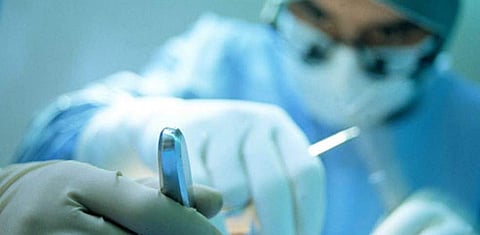

BENGALURU: The post-Covid security infrastructure will involve beefing up of scientific and technical intelligence that will help in surveillance and early warning systems for health outbreaks that may impact lives and economy on a large scale in the country.
The Department of Bio-Technology, under the ‘Establishment of a Consortium for One Health to address Zoonotic and Transboundary Diseases in India, including the Northeast Region,’ has “approved a sampling plan and forecasting model for surveillance of infectious zoonotic diseases in humans by ICAR-NIVEDI, Bengaluru,” said Principal Scientist, National Institute of Veterinary Epidemiology & Disease Informatics (NIVEDI), Dr K P Suresh.
“The first-of-its-kind intelligence software tool will be styled on National Animal Disease Referral Expert System-v2 (NADRES-v2), which was developed by the ICAR-NIVEDI five years ago as a surveillance and forewarning system for livestock disease management. It will be used for surveillance and forecasting of zoonotic diseases in humans such as coronaviruses, brucellosis, TB, coxiellosis, cryptosporidiosis, cysticercosis, Japanese Encephalitis, leptospirosis, scrub typhus and listeriosis,” he said. The NADRES-v2 is real-time Artificial Intelligence (AI) and Machine Learning-enabled software which is used in forecasting of infectious livestock diseases two months in advance so as to prepare the stakeholders and help them initiate preventive measures.
“The National Centre for Disease Control, Ministry of Health and Family Welfare, had approached NIVEDI to develop a system to be used for forecasting of zoonotic diseases in humans,” said Principal Scientist, NIVEDI, Dr Sharangouda Patil. Suresh and Patil are involved in developing the software application.“The operational disease forewarning systems using AI, ML and data science are more feasible and economical to mitigate risk of epidemics, when the predictions are more precise and accurate,” said Dr Suresh.